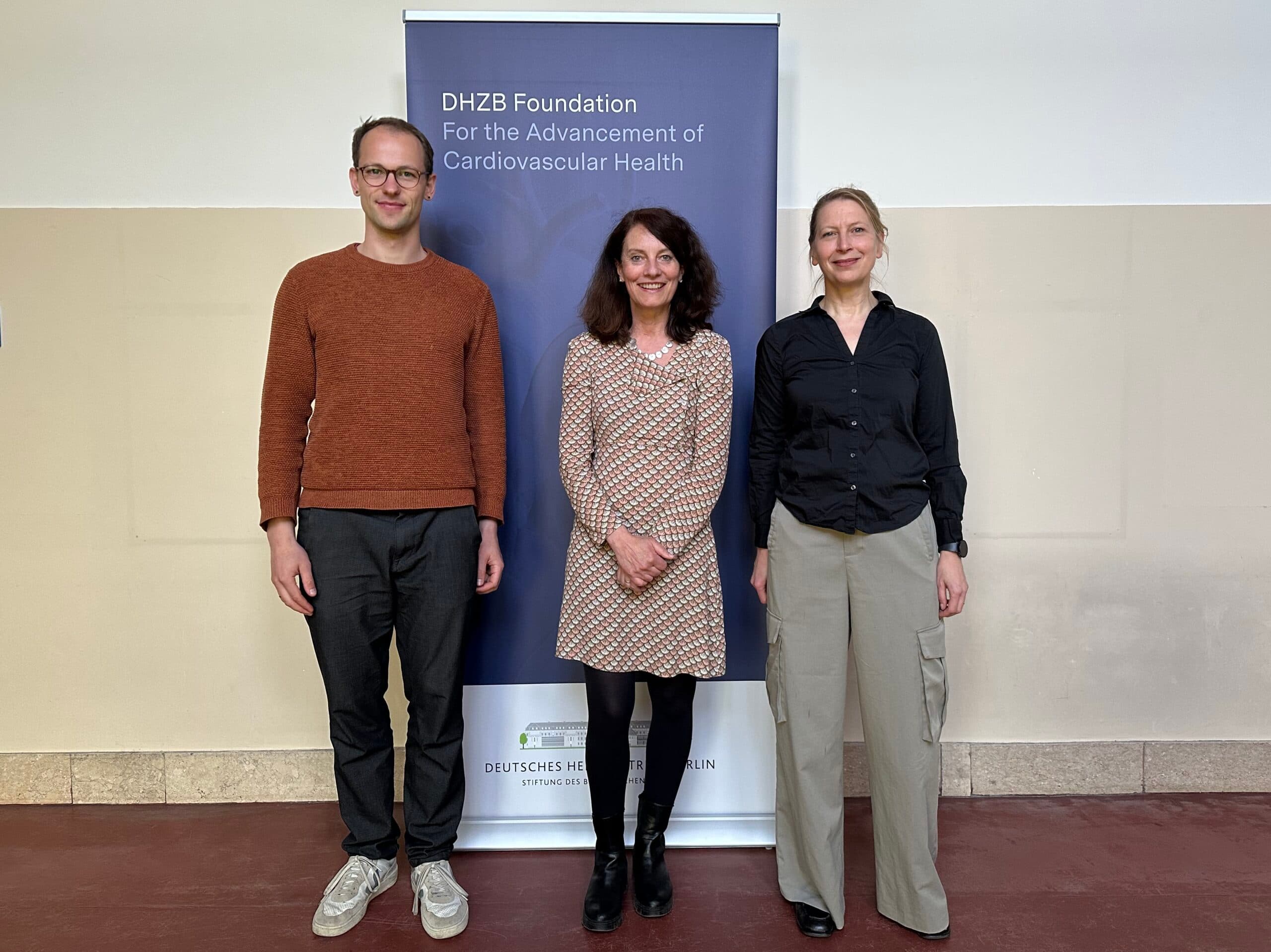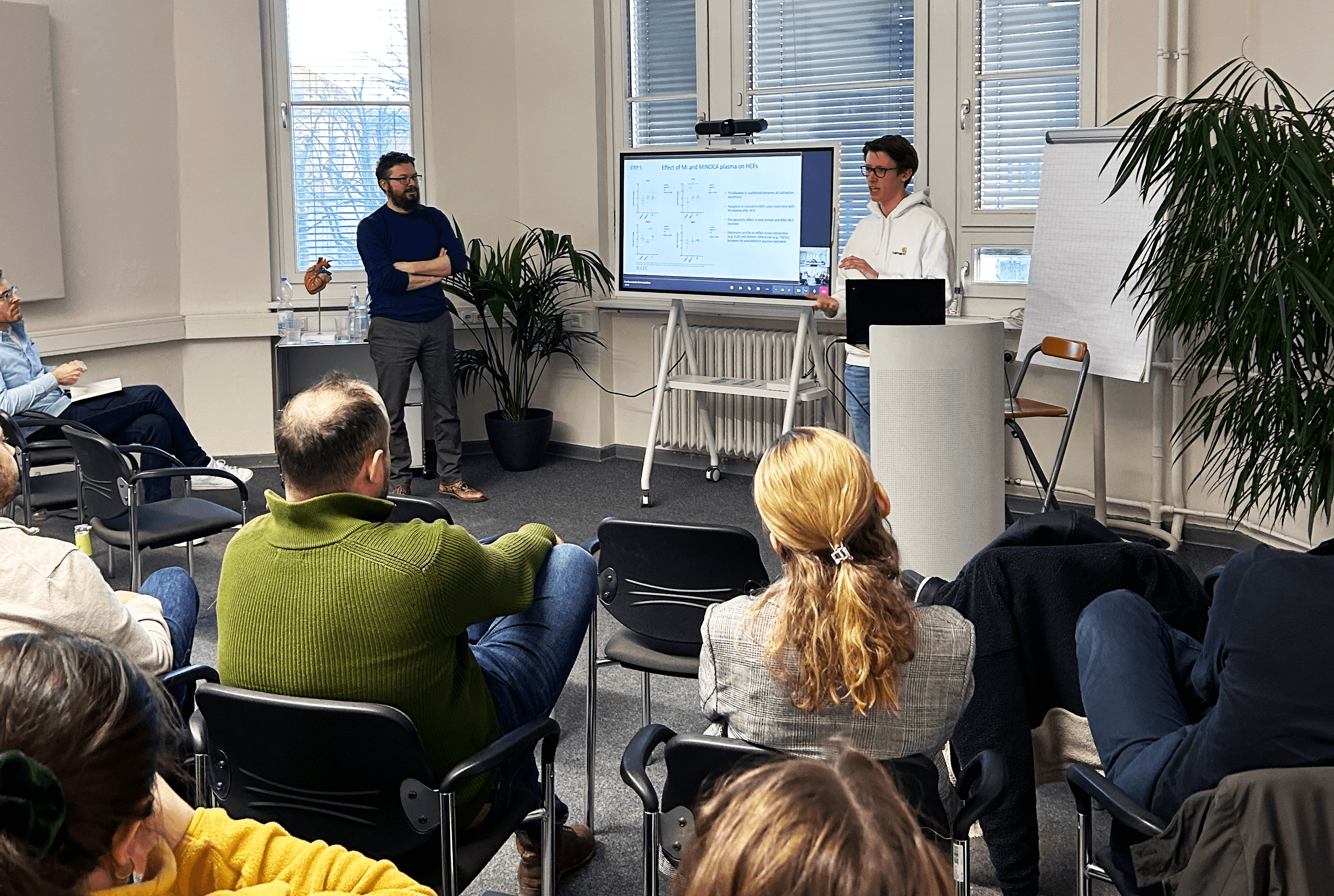The presentation by Prof. Felix Schönrath (Clinic for Heart-, Thoracic- and Vessel- Surgery) discussed the challenges and advances in treating advanced heart failure and cardiogenic shock. He highlighted the high mortality of these conditions and reviewed the evolution of mechanical circulatory support (MCS) at the German Heart Center. Although modern LVADs, such as magnetically levitated pumps, improve hemocompatibility and survival rates to 50% after 60 months, disease reversal and successful LVAD weaning remain rare. Clinical trials and registries show limited recovery, with permanent neurohumoral overstimulation by guideline recommended medical therapy. The talk emphasizes the need for personalized treatment strategies to improve outcomes in advanced heart failure patients.
Dr. Anna Feuerstein (Clinic for Cardiology, Angiology and Intensive Care Medicine, CVK) highlighted in her presentation the importance of exercise training in heart failure, underscoring its proven benefits for quality of life, functional capacity, and reduced hospitalizations. Evidence supports its efficacy not only in HFrEF and HFpEF, but also in patients with LVADs, with trials demonstrating both safety and meaningful improvements in exercise capacity and patient-reported outcomes. A personalized regimen combining aerobic and resistance training was emphasized as the most effective approach. Emerging strategies, such as robotic-assisted mobilization (e.g., MyoSuit), are being investigated, alongside studies into the underlying molecular mechanisms. Despite strong guideline recommendations, a critical gap remains in ensuring widespread and community-level access to heart failure exercise programs.
Heart failure with preserved ejection fraction (HFpEF) is frequently complicated by right ventricular (RV) dysfunction, which is associated with poor outcomes but remains mechanistically unclear. The PhD student Lara Jaeschke (Grune Lab, Campus Mitte) developed a new HFpEF mouse model with secondary pulmonary hypertension and right ventricular maladaptation to investigate the role of innate immune cells in the disease pathology. Using the mouse model and patient biopsies, Lara Jaeschke demonstrated that macrophage recruitment and accumulation and neutrophil expansion drive the release of pro-fibrotic and pro-inflammatory mediators, leading to fibrosis, RV hypertrophy, and dysfunction. Importantly, macrophage depletion rescued RV function and normalized inflammatory and fibrotic gene expression, establishing myeloid cells as causal drivers of RV pathology in HFpEF and highlighting them as potential therapeutic targets.
*Deutscher Herzbericht 2024


